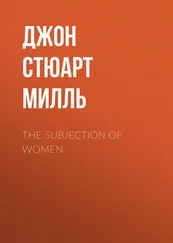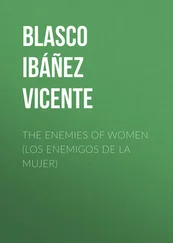They met on a cold evening in front of the art museum and shook hands with a little stiffness. After the greeting, they began to stroll back and forth. With the thick down jackets and tightly fitting jeans both wore, from a distance they must have looked like a pair of meandering ostriches. Tiao had never gone on a date alone with a man, particularly a man so “close to poets.” As they started to walk around uncomfortably, Tiao was struck with the meaninglessness of it all: What was she doing here? Where did she want to go? Didn’t her roommate tell her that the editor was a married man when she set them up? She meant this to indicate that Tiao could relax; they could date or not, no pressure — can’t a man and woman meet alone, whether they’re on a date or not? In eras like the sixties or seventies it might have seemed absurd, but things were different now. From her roommate’s perspective, only when a single female student dated a married male editor could an era be proved open and a person be proved free. And at this moment, her theory was being put into practice with Tiao’s help. Unfortunately, neither Tiao’s body nor her mind felt free; she was very nervous. When she felt nervous she just babbled. She talked about the boys and girls in her class, the food in their cafeteria, and how their professor of modern literature walked into the classroom with a misbuttoned shirt … she went on and on, quickly and at random, so her conversation wasn’t at all intellectual, clever, fun, or witty. Her mind went completely blank, and her blank mind soberly reminded her again and again how ridiculous her meeting with this “ostrich” beside her was. By spouting endless nonsense, she was simply punishing herself for going on this most absurd date. She rambled on and on, full of anxiety because she had no experience in ending a meeting that should have ended before it began. She even stupidly believed that if she kept on talking without a pause, she could hasten the end of the date. Finally the editor interrupted her, and not until then did she discover how nasal his voice was. She didn’t like men with nasal voices. People who spoke that way sounded pretentious, as if they were practicing pronunciation while speaking. The editor said, “Do you plan to go back to your hometown? Your hometown is Fuan, right? Even though it’s an ancient city, it’s still provincial. I suggest you try and arrange to stay in Beijing for your graduation assignment. It’s the only cultural centre. Of this I’m very sure.”
Tiao was a little bit offended by the editor’s words. What right did he have to keep saying “your town”? Her upper-bunk roommate said he’d just been transferred to Beijing from Huangtu Plateau a few years ago, and now he talked so patronizingly to Tiao as if he were some kind of master of Beijing. Where was he when she was sipping raspberry soda in the alleys of Beijing?
Images from the past were still vivid for her: all those things that happened long ago, how she suffered when she first entered the city of Fuan as a young Beijinger. She’d felt wronged as well as proud. She’d tried hard to blend into the city, and maybe she had. The way she did blend in gave her energy, and allowed her, along with several close friends, to keep her Beijing accent bravely in that ancient, xenophobic city. Beijing! Beijing had never known there were several young women like this who had tried in vain to bring their culture to a strange city. Even though Beijing had never needed and would never need their sacrifice, Tiao and her friends insisted on such devotion. But the man in front of her, this man, what had he done for Beijing? He already considered himself a Beijinger. Besides, his mention of her graduation assignment annoyed her. How could she discuss personal business like her graduation assignment with a stranger? In short, nothing felt right. She resented the attitude of her roommate and her own silliness — she very much wanted to use this word to describe herself. She felt a bit sad, for the way she had thrust herself forward without any idea of the direction she should take; she also felt a bit awakened: she suddenly realized that her youth wasn’t flowing away in the current, that what she herself treasured was still precious, and she felt lucky to be able to hold on to it. She was as good as her roommate in many ways, and if she couldn’t keep up with her in this way, she was content to “fall behind.”
As she waited for the last bus to come, her thinking became clearer and clearer. There were many people on the bus. She flashed a farewell smile at the editor, ran to catch it, and then tried with all her might to force her way onto the already packed bus. The editor had followed her, apparently not wanting to leave until he made sure she’d got on. She turned around and yelled at him, “Hey, can you give me a push?” He gave her a push, and she was crammed on board. The door shut behind her with a swoosh.
Standing in the last bus, she suddenly smiled to herself. She realized “Give me a push” was actually what she had most wanted to say tonight. She also realized the editor was a nice, honest man. But just as she wasn’t attracted to him, he also wasn’t at all attracted to her.
4
It wasn’t as though she didn’t want to write back to Fang Jing; she put off writing because she didn’t know what to say. Maybe everything had happened too quickly. In any case, she couldn’t treat Fang Jing’s letter from San Francisco as a casual note. She carefully read the letter over and over, and time and again it brought her to tears. She’d never read such a good letter, and she had no reason to doubt the author’s sincerity.
So she started to write back. “Mr. Fang Jing, how are you?” she wrote. Then she would tear the letter up and start over. He was so important and she was so insignificant. She lacked confidence and was afraid of making a fool of herself — but how could she write a letter of the same quality as a celebrity like Fang Jing? It was impossible; she had neither the writing talent nor the emotional maturity his letter displayed. Just based on the letter alone, Tiao felt that she had already fallen in love with him. And she had to fall in love with him because she believed he had fallen in love with her — and it was her good fortune to be loved by him, she thought selflessly. At her age and with her lack of experience, she couldn’t immediately tell the difference between admiration and love, or know how quickly a feeling driven by vanity might get the better of her. Maybe at those times she thought about her senior-year roommate. Compared to Fang Jing, who was that writer of her roommate’s, with his “overflowing talent”? How could her love affair match Tiao’s secret life now? College life, the flare of red-hot emotion that came and went quickly.
Once again she started to write a reply to him, but finally could only come up with those few words, “Dear Mr. Fang Jing, how are you?”
She went out and found a second-run cinema to watch a movie of his, to meet him on the screen. She listened to his voice, studied his features, and savoured his expressions. She tried very hard to memorize his looks, but when she returned home and lay in her bed, she found she had completely forgotten. It frightened and worried her, and seemed like a bad sign. The next day she took the opportunity to watch the movie again. She stared at him on the screen, as if she had found a long-lost family member. She still couldn’t compose the letter. Then she received his phone call at her office.
He phoned at a time that everyone was in the office. The chief editor said to her, “Tiao, your uncle’s calling.” As soon as she walked to the phone and picked up the receiver, she recognized his southern-accented Mandarin. He said the following paragraph in one breath, with some formality and a tone that left her no room for contradiction: “Is this Comrade Yin Xiaotiao? This is Fang Jing. I know there are a lot of people in your office. You don’t have to say anything. Don’t call me Mr. Fang Jing. Just listen to me. I’ve returned to Beijing and haven’t received a letter or phone call from you. It’s very likely that you’re laughing at me for being foolish. But please let me finish. Don’t hang up on me and don’t be afraid of me. I don’t want to be unreasonable. I just want to see you. Listen to me — I’m at a conference at the Beijing Hotel. Can you arrange to come to Beijing to solicit manuscripts? I know editors come to Beijing all the time. You come and we’ll meet. I’ll give you my phone number for the conference. You don’t have to respond to me right away, though of course I want to have your immediate response, your positive response, very much. No, no, you should think it over first. I have a few more things I want to ramble on about, I know I don’t seem very composed, but I have somehow lost control of myself, which is very unusual for me. I would rather trust my instincts, though. Please don’t be in a hurry to refuse me. Don’t be in a hurry to refuse me. Now I’m going to give you the number. Can you write it down? Can you remember it …?”
Читать дальше
Конец ознакомительного отрывка
Купить книгу












